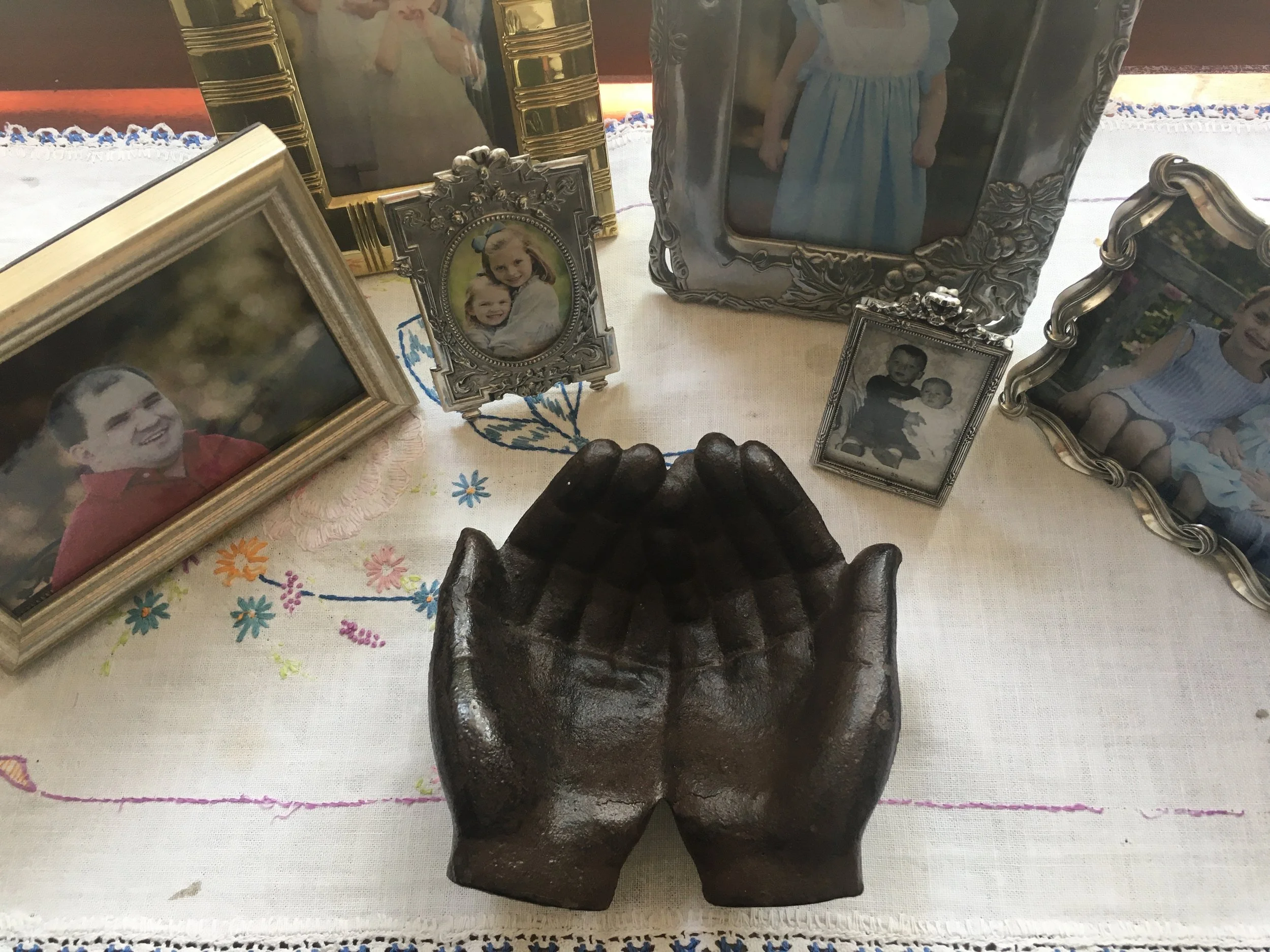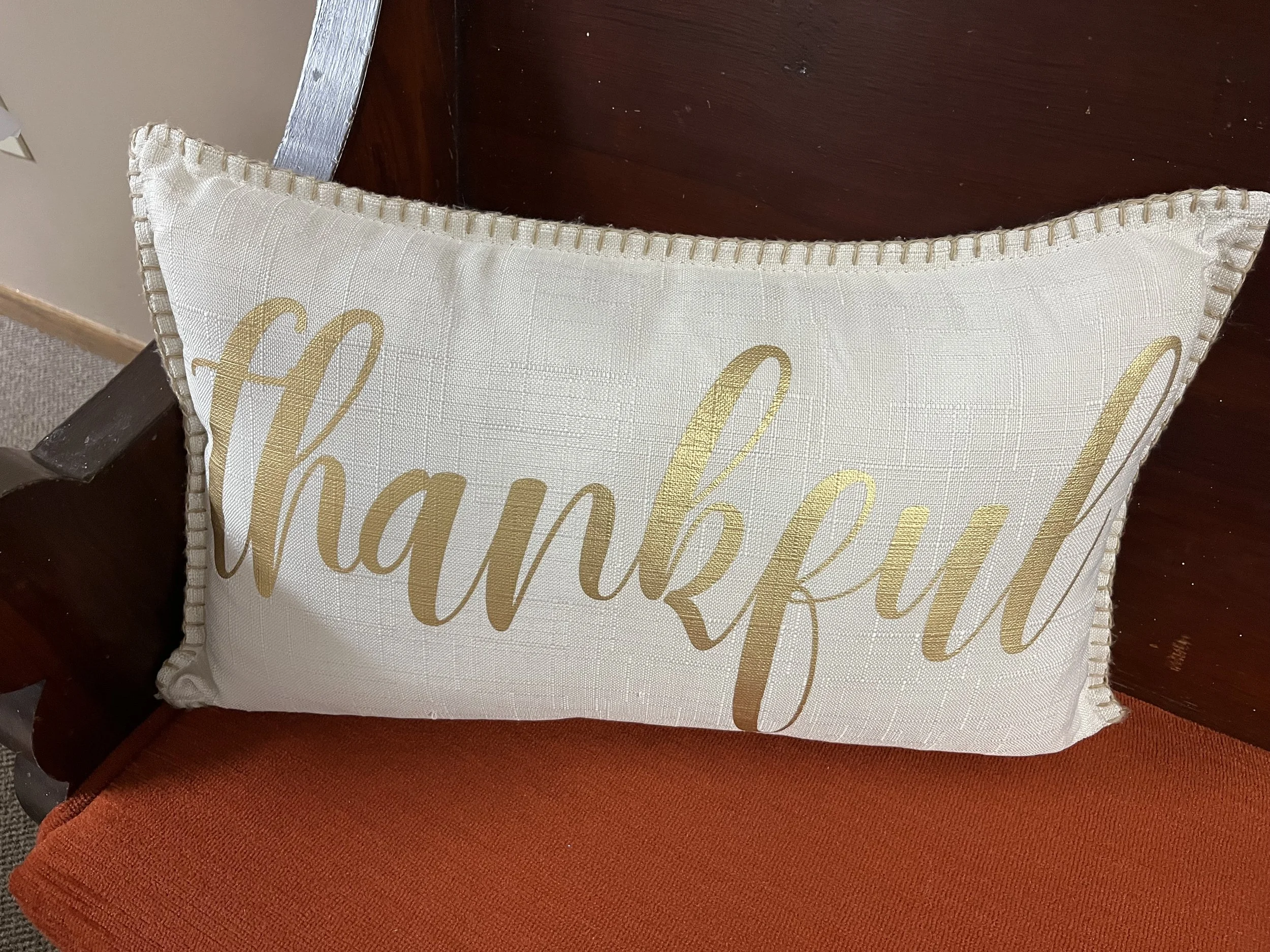Gratitude and Prayer
“We always thank God…
when we pray for you.”
Colossians 1:3 (NIV)
Pastor Tim Keller died in May 2023. Not long before his death Keller was asked if, looking back on nearly fifty years of ministry, there was anything that he would have done differently. “Absolutely,” he replied. “I should have prayed more.”
Most of us probably feel what Tim Keller felt. We struggle with prayer and often wonder why our prayers don’t seem to rise above the ceiling. The Apostle Paul didn’t struggle with prayer; he struggled in prayer. (Ephesians 6:12,18)
In his opening words to the Colossians, Paul & Timothy are praying together for the believers in Colossae who are located 1200 miles from Rome where Paul sits imprisoned. Paul is truly grateful for these believers even though he never met most of them. He focused most of his apostolic ministry on larger urban cities such as Ephesus, Corinth, Athens, Philippi, and Rome. By comparison, Colossae was an insignificant small town.
Gratitude and thankfulness are sacred echoes that permeate Paul’s letter and are repeated seven times:
We always thank God when we pray for you. (Colossians 1:3)
Joyful thanks (Colossians 1:12)
Overflowing with thankfulness (Colossians 2:7)
Be thankful (Colossians 3:15)
Gratitude in your hearts (Colossians 3:16)
Giving thanks to God the Father (Colossians 3:17)
Being watchful in thanksgiving (Colossians 4:2)
A poor pagan people had heard, believed, and received the good news that Jesus saves sinners and their lives were forever changed. Their faith, hope, and love demonstrated the reality of their faith. That is reason for Paul to give thanks.
But Paul isn’t just thankful; he is also prayerful. His prayers were framed and fueled by gospel grace. Paul prayed strategic prayers designed to advance God’s Kingdom and bring glory to God. He prays for these new believers to live a life worthy of Christ; to grow in their knowledge of God; and be strengthened with God’s power so that they will develop endurance and patience. In other words, Paul prays for their character and conduct to become more Christ-like. In all of his prayers, Paul never asks for his or the Colossians’ circumstances to be changed. He is a child of the king coming to the King and asking for the Kingdom.
I’ve just finished reading Matt Smethurst’s new book Tim Keller on the Christian Life. Smethurst recalls Redeemer’s early beginnings and the impact intercessory prayer had on the Kellers’ ministry in New York. Smethurst writes:
“The Kellers did not want to move to New York City…What ultimately brought Keller to embrace the direction God was taking him …(were) the words of the Puritan William Gurnall: “It requires more prowess and greatness of spirit to obey God faithfully, than to command an army of men; to be a Christian, than to be a captain.” As he relinquished his fears and made the consequential decision to move to New York, Keller noted an immediate turning point in his prayer life.
But it wasn’t just prayer from the Kellers, but for them that likely made the greatest difference. The PCA’s Women in the Church contributed a third of the funds raised for the church plant; they also formed an army of prayer support. The Kellers could feel the women of over four hundred churches praying for them! Kathy marvels that despite her “Whiny most self-pitying prayer letters,” the faithful intercession of these warriors moved the heart and hand of God and had an immeasurable impact on the Kellers’ ministry beginnings in New York.
“They prayed up a storm!” Kathy said. “It’s like we couldn’t make a bad decision in those early years. I’m convinced there was never a church plant, even going back to the apostle Paul and the first century church, that had so many people, especially women, praying for it.” Doubtless such prayer support was a major factor in the revival-like character of Redeemer’s early years.”
We should never underestimate the power of intercessory prayer on behalf of others. Who are you praying for and what do you pray? Most of us if we’re honest are heavy on petitions for our loved ones and ourselves, but fall short on gratitude and Kingdom prayers.
John Newton wrote a hymn whose second stanza challenges us to pray big Kingdom prayers.
Thou art coming to a King,
Large petitions with thee bring;
For His grace and power are such,
None can ever ask too much;
“Prayer is the litmus test of our relationship to God.” (Tim Keller)





